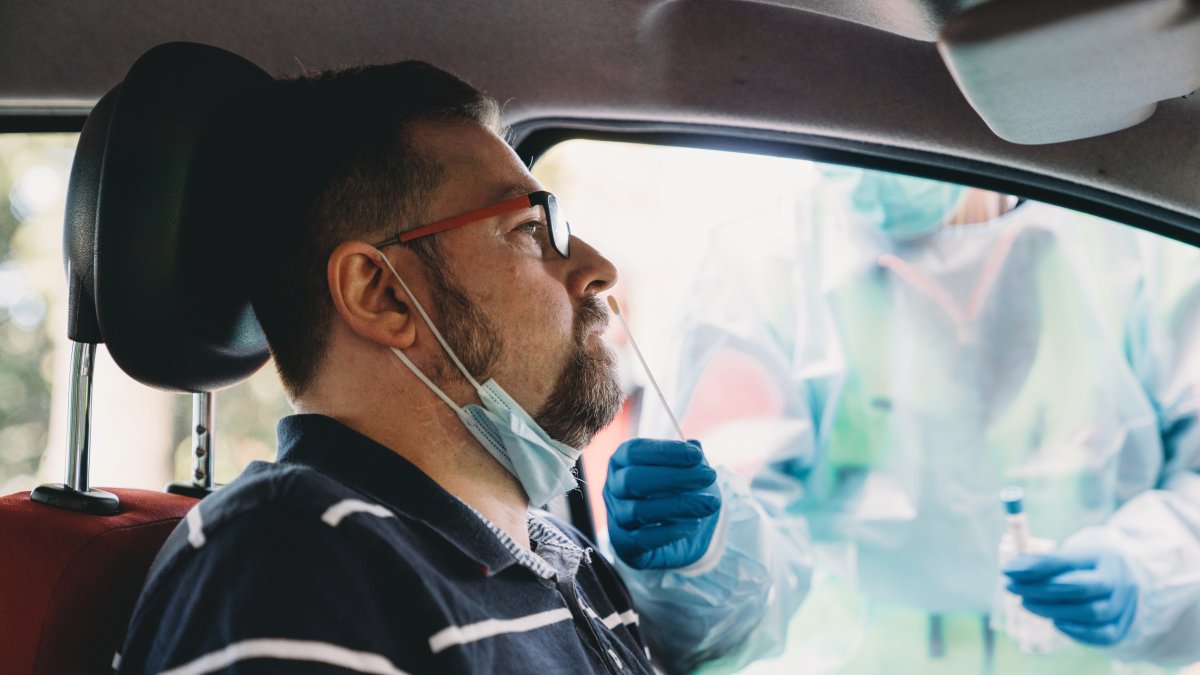
Cases are rising in several Midwest states as temperatures cool and people head inside this winter, making the area the “current COVID hot spot,” according to Chicago’s top doctor.
Cases are rising in several Midwest states as temperatures cool and people head inside this winter, making the area the "current COVID hot spot," according to Chicago's top doctor.
Chicago Department of Public Health Commissioner Dr. Allison Arwady noted Tuesday that Michigan, Minnesota and Wisconsin "currently have the highest rates of COVID-19 in the country per capita."
As of Tuesday, Minnesota was averaging 60.9 new coronavirus cases per day, per 100,000 residents.
At the same time, Wisconsin and Michigan averaged 55.4 and 55.5, respectively.
Feeling out of the loop? We'll catch you up on the Chicago news you need to know. Sign up for the weekly Chicago Catch-Up newsletter here.
Indiana and Iowa saw lower case rates, but both remained among the highest 20 states when it comes to that metric. Iowa reported 41.8 new daily cases per 100,000 residents and Indiana stood at 31.9. Missouri stood at 25.2.
All of the states listed have higher rates than Illinois, which saw 23.7 average daily cases per 100,000 residents as of Tuesday.
“The Midwest is the current COVID hot spot as temperatures drop and people spend more time inside, so please protect yourself and get vaccinated," Arwady said in a statement.
Illinois remains the only Midwest state still implementing a mask mandate, which some experts have cited among the reasons the state's case rates are lower than its neighbors.
"I think context matters in terms of where geographically the states are, and we know for sure that the colder weather - we're seeing that in Europe as well, the colder countries are seeing higher numbers of cases, so just something to keep in mind," Dr. Jennifer Seo, chief medical officer with the Chicago Department of Public Health, said in a press conference earlier this month. "But I would compare us probably more closely to Michigan or Minnesota where they don't have masks dates like we do here in Illinois and they're seeing highest case rates right now."
Chicago's numbers appeared to drop in the last week, but Arwady noted that the dip could largely be attributed to the Thanksgiving holiday and a lack of testing. The city's positivity rate still climbed from 3% last week to 3.5% this week.
"We see a big drop off of people being tested, being diagnosed in that setting," Arwady said. "We see positivity come up, but we see a dip."
This comes as Chicago officials prepare for the new omicron COVID variant, though they said there are still many questions to be answered about the emerging variant of concern.
In a statement Monday, Chicago Mayor Lori Lightfoot and Arwady said the city is "very engaged in the heightened discussions regarding the omicron variant of the COVID-19 virus, particularly with our federal partners."
"At this point, there are many questions which scientists across the world, and at the Chicago Department of Public Health, are actively working to address all while closely monitoring this strain," the statement read. "While that work continues, we must as a city, and importantly as individuals, continue to follow the public health guidance: get vaccinated, and if vaccinated, get your booster; wear a mask indoors and when you're around other people; and if you are feeling sick, stay home to save lives. The unvaccinated remain the most at risk to themselves and others so please get vaccinated as soon as possible."
Similarly, Cook County's health department said on Friday it was watching the variant "very carefully."
The global risk of omicron is "very high," the World Health Organization said Monday, as more countries reported cases of the variant that has led to worldwide concern that there is more pandemic suffering ahead.
Despite the global alarm, there is still little understanding about the variant and how virulent it may be.
The leading infectious disease expert for the U.S., Dr. Anthony Fauci said public health experts are trying to find answers to questions such as whether the omicron variant causes more severe illness and whether it can evade protection from vaccines or treatments.
"It also has a bunch of mutations that would suggest it could evade the protection, for example, of monoclonal antibodies and perhaps even convalescent plasma for people who have been infected and recovered, and possibly vaccine. These are all maybes, but the suggestion is enough," Fauci said.
The extent of the actual spread of the omicron variant around the world, however, still remains unclear as countries discover new cases each day.
The U.S. has yet to identify any cases but Fauci and other experts have warned that it could already have made it to America.
"I would not be surprised if it is. We have not detected it yet, but when you have a virus that is showing this degree of transmissibility and you're already having travel-related cases that they've noted in Israel and Belgium and other places, when you have a virus like this, it almost invariably is ultimately going to go essentially all over," Fauci said.